- Home
- Brandon Sanderson
Alcatraz vs. The Evil Librarians
Alcatraz vs. The Evil Librarians Read online
Begin Reading
Table of Contents
About the Author
Copyright Page
Thank you for buying this
Tom Doherty Associates ebook.
To receive special offers, bonus content,
and info on new releases and other great reads,
sign up for our newsletters.
Or visit us online at
us.macmillan.com/newslettersignup
For email updates on the author, click here.
The author and publisher have provided this e-book to you without Digital Rights Management software (DRM) applied so that you can enjoy reading it on your personal devices. This e-book is for your personal use only. You may not print or post this e-book, or make this e-book publicly available in any way. You may not copy, reproduce, or upload this e-book, other than to read it on one of your personal devices.
Copyright infringement is against the law. If you believe the copy of this e-book you are reading infringes on the author’s copyright, please notify the publisher at: us.macmillanusa.com/piracy.
For my father, Winn Sanderson, who bought me books
Author’s Foreword
I am not a good person.
Oh, I know what the stories say about me. They call me Oculator Dramatus, Hero, Savior of the Seventeen Kingdoms.… Those, however, are just rumors. Some are exaggerations; many are outright lies. The truth is far less impressive.
When Mr. Bagsworth first came to me, suggesting that I write my autobiography, I was hesitant. However, I soon realized that this was the perfect opportunity to explain myself to the public.
As I understand it, this book will be published simultaneously in the Free Kingdoms and Inner Libraria. This presents something of a problem for me, since I will have to make the story understandable to people from both areas. Those in the Free Kingdoms might be unfamiliar with things like bazookas, briefcases, and guns. However, those in Libraria—or the Hushlands, as they are often called—will likely be unfamiliar with things like Oculators, Crystin, and the depth of the Librarian conspiracy.
To those of you in the Free Kingdoms, I suggest that you find a reference book—there are many that would do—to explain unfamiliar terms to you. After all, this book will be published as a biography in your lands, and so it is not my purpose to teach you about the strange machines and archaic weaponry of Libraria. My purpose is to show you the truth about me, and to prove that I am not the hero that everyone says I am.
In the Hushlands—those Librarian-controlled nations such as the United States, Canada, and England—this book will be published as a work of fantasy. Do not be fooled! This is no work of fiction, nor is my name really Brandon Sanderson. Both are guises to hide the book from Librarian agents. Unfortunately, even with these precautions, I suspect that the Librarians will discover the book and ban it. In that case, our Free Kingdom Agents will have to sneak into libraries and bookstores to put it on shelves. Count yourself lucky if you’ve found one of these secret copies.
For you Hushlanders, I know the events of my life may seem wondrous and mysterious. I will do my best to explain them, but please remember that my purpose is not to entertain you. My purpose is to open your eyes to the truth.
I know that in writing this I shall make few friends in either world. People are never pleased when you reveal that their beliefs are wrong.
But that is what I must do. This is my story—the story of a selfish, contemptible fool.
The story of a coward.
Chapter
1
So there I was, tied to an altar made from outdated encyclopedias, about to get sacrificed to the dark powers by a cult of evil Librarians.
As you might imagine, that sort of situation can be quite disturbing. It does funny things to the brain to be in such danger—in fact, it often makes a person pause and reflect upon his life. If you’ve never faced such a situation, then you’ll simply have to take my word. If, on the other hand, you have faced such a situation, then you are probably dead and aren’t likely to be reading this.
In my case, the moment of impending death made me think about my parents. It was an odd thought, since I hadn’t grown up with them. In fact, until my thirteenth birthday, I really only knew one thing about my parents: that they had a twisted sense of humor.
Why do I say this? Well, you see, my parents named me Al. In most cases, this would be short for Albert, which is a fine name. In fact, you have probably known an Albert or two in your lifetime, and chances are that they were decent fellows. If they weren’t, then it certainly wasn’t the name’s fault.
My name isn’t Albert.
Al also could be short for Alexander. I wouldn’t have minded this either, since Alexander is a great name. It sounds kind of regal.
My name isn’t Alexander.
I’m certain that you can think of other names Al might be short for. Alfonso has a pleasant ring to it. Alan would also be acceptable, as would have been Alfred—though I really don’t have an inclination toward butlery.
My name is not Alfonso, Alan, or Alfred. Nor is it Alejandro, Alton, Aldris, or Alonzo.
My name is Alcatraz. Alcatraz Smedry. Now, some of you Free Kingdomers might be impressed by my name. That’s wonderful for you, but I grew up in the Hushlands—in the United States. I didn’t know about Oculators or the like, though I did know about prisons.
And that was why I figured that my parents must have had a twisted sense of humor. Why else would they name their child after the most infamous prison in U.S. history?
On my thirteenth birthday, I received a second confirmation that my parents were indeed cruel people. That was the day when I unexpectedly received in the mail the only inheritance they left me.
It was a bag of sand.
I stood at the door, looking down at the package in my hands, frowning as the postman drove away. The package looked old—its string ties were frayed, and its brown paper packaging was worn and faded. Inside the package, I found a box containing a simple note.
Alcatraz,
Happy thirteenth birthday!
Here is your inheritance, as promised.
Love, Mom and Dad
Underneath the note, I found the bag of sand. It was small, perhaps the size of a fist, and was filled with ordinary brown beach sand.
Now, my first inclination was to think that the package was a joke. You probably would have thought the same. One thing, however, made me pause. I set the box down, then smoothed out its wrinkled packaging paper.
One edge of the paper was covered with wild scribbles—a little like those made by a person trying to get the ink in a pen to flow. On the front there was writing. It looked old and faded—almost illegible in places—and yet it accurately spelled out my address. An address I’d been living at for only eight months.
Impossible, I thought.
Then I went inside my house and set the kitchen on fire.
Now, I warned you that I wasn’t a good person. Those who knew me when I was young would never have believed that one day I would be known as a hero. The word heroic just didn’t apply to me. Nor did people use words like nice or even friendly to describe me. They might have used the word clever, though I suspect that devious may have been more correct. Destructive was another common one that I heard, but I didn’t care for it. (It wasn’t actually all that accurate.)
No, people never said good things about me. Good people don’t burn down kitchens.
Still holding the strange package, I wandered toward my foster parents’ kitchen, lost in thought. It was a very nice kitchen, modern looking with white wallpaper and lots of shiny chrome appliances. Anyone entering it would immediately notice that t
his was the kitchen of a person who took pride in their cooking skills.
I set my package on the table, then moved over to the kitchen stove. If you’re a Hushlander, you would have thought I looked like a fairly normal American boy, dressed in loose jeans and a T-shirt. I’ve been told I was a handsome kid—some even said that I had an “innocent face.” I was not too tall, had dark brown hair, and was skilled at breaking things.
Quite skilled.
When I was very young, other kids called me a klutz. I was always breaking things—plates, cameras, chickens. It seemed inevitable that whatever I picked up, I would end up dropping, cracking, or otherwise mixing up. Not exactly the most inspiring talent a young man ever had, I know. However, I generally tried to do my best despite it.
Just like I did this day. Still thinking about the strange package, I filled a pot with water. Next I got out a few packs of instant ramen noodles. I set them down, looking at the stove. It was a fancy gas one with real flames. My foster mother Joan wouldn’t settle for electric.
Sometimes it was daunting, knowing how easily I could break things. This one simple curse seemed to dominate my entire life. Perhaps I shouldn’t have tried to fix dinner. Perhaps I should simply have retreated to my room. But what was I to do? Stay there all the time? Never go out because I was worried about the things I might break? Of course not.
I reached out and turned on the gas burner.
And, of course, the flames immediately flared up around the sides of the pan, far higher than should have been possible. I quickly tried to turn down the flames, but the knob broke off in my hand. I tried to grab the pot and take it off the stove. But, of course, the handle broke off. I stared at the broken handle for a moment, then looked up at the flames. They flickered, catching the drapes on fire. The fire gleefully began to devour the cloth.
Well, so much for that, I thought with a sigh, tossing the broken handle over my shoulder. I left the fire burning—once again, I feel I must remind you that I’m not a very nice person—and picked up my strange package as I walked out into the den.
There, I pulled out the brown wrapper, flattening it against the table with one hand and looking at the stamps. One had a picture of a woman wearing flight goggles, with an old-fashioned airplane in the background behind her. All of the stamps looked old—perhaps as old as I was. I turned on the computer and checked a database of stamp issue dates and found that I was right. They had been printed thirteen years ago.
Someone had taken quite a bit of effort to make it seem like my present had been packaged, addressed, and stamped over a decade earlier. That, however, was ridiculous. How would the sender have known where I’d be living? During the last thirteen years, I’d gone through dozens of sets of foster parents. Besides, my experience has been that the number of stamps it takes to send a package increases without warning or pattern. (The postage people are, I’m convinced, quite sadistic in that regard.) There was no way someone could have known, thirteen years ago, how much postage it would cost to send a package in my day.
I shook my head, standing up and tossing the M key from the computer keyboard into the trash. I’d stopped trying to stick the keys back on—they always fell off again anyway. I got the fire extinguisher from the hall closet, then walked back into the kitchen, which was now quite thoroughly billowing with smoke. I put the box and extinguisher on the table, then picked up a broom, holding my breath as I calmly knocked the tattered remnants of the drapes into the sink. I turned on the water, then finally used the extinguisher to blast the burning wallpaper and cabinets, also putting out the stove.
The smoke alarm didn’t go off, of course. You see, I’d broken that previously. All I’d needed to do was rest my hand against its case for a second, and it had fallen apart.
I didn’t open a window, but did have the presence of mind to get a pair of pliers and twist the stove’s gas valve off. Then I glanced at the curtains, a smoldering ashen lump in the sink.
Well, that’s it, I thought, a bit frustrated. Joan and Roy will never continue to put up with me after this.
Perhaps you think I should have felt ashamed. But what was I supposed to do? Like I said—I couldn’t hide in my room all the time. Was I to avoid living just because life was a little different for me than it was for ordinary people? No. I had learned to deal with my strange curse. I figured that others would simply have to do so as well.
I heard a car in the driveway. Finally realizing that the kitchen was still rank with smoke, I opened the window and began using a towel to fan it out. My foster mother—Joan—rushed into the kitchen a moment later. She stood, horrified, looking at the fire damage.
I tossed aside the towel and left without a word, going up to my room.
* * *
“That boy is a disaster!”
Joan’s voice drifted up through the open window into my room. My foster parents were in the study down on the first floor, their favorite place for “quiet” conferences about me. Fortunately, one of the first things that I’d broken in the house had been the study’s window rollers, locking the windows permanently open so that I could listen in.
“Now, Joan,” said a consoling voice. It belonged to Roy, my foster father.
“I can’t take it!” Joan sputtered. “He destroys everything he touches!”
There was that word again. Destroy. I felt my hair bristle in annoyance. I don’t destroy things, I thought. I break them. They’re still there when I’m finished, they just don’t work right anymore.
“He means well,” Roy said. “He’s a kindhearted boy.”
“First the washing machine,” Joan ranted. “Then the lawn mower. Then the upstairs bath. Now the kitchen. All in less than a year!”
“He’s had a hard life,” Roy said. “He simply tries too hard—how would you feel, being passed from family to family, never having a home…?”
“Well, can you blame people for getting rid of him?” Joan said. “I—”
She was interrupted by a knock on the front door. There was a moment of silence, and I imagined what was going on between my foster parents. Joan was probably giving Roy “the look.” Usually it was the husband who gave “the look,” insisting that I be sent away. Roy had always been the soft one here, however. I heard his footsteps as he went to answer the door.
“Come in,” Roy said, his voice faint, since he now stood in the entryway. I remained lying on my bed. It was still early evening—the sun hadn’t even set yet.
“Mrs. Sheldon,” a new voice said from below, acknowledging Joan. “I came as soon as I heard about the accident.” It was a woman’s voice, familiar to me. Businesslike, curt, and more than a little condescending. Perhaps that had something to do with why Ms. Fletcher wasn’t married.
“Ms. Fletcher,” Joan said, faltering now that the time had come. They usually did. “I’m … sorry to—”
“No,” Ms. Fletcher said. “You did well to last this long. I can arrange for the boy to be taken tomorrow.”
I closed my eyes, sighing quietly. Joan and Roy had lasted quite long—longer, certainly, than any of my other recent sets of foster parents. Eight months was a valiant effort when taking care of me was concerned. I felt a little twist in my stomach.
“Where is he now?” Ms. Fletcher asked.
“He’s upstairs.”
I waited quietly. Ms. Fletcher knocked but didn’t wait for my reply before pushing open the door.
“Ms. Fletcher,” I said. “You look lovely.”
It was a stretch. Ms. Fletcher—my personal caseworker—might have been a pretty woman, had she not been wearing a pair of hideous horn-rimmed glasses. She perpetually kept her blonde hair up in a bun that was only slightly less tight than the dissatisfied line of her lips. She wore a simple white blouse and a black skirt that went to mid-calf. For her, it was a daring outfit—the shoes, after all, were maroon.
“The kitchen, Alcatraz?” Ms. Fletcher asked. “Why the kitchen?”
“It was an accident,” I mumbled
. “I was trying to do something nice for my foster parents.”
“You decided that you would be kind to Joan Sheldon—one of the city’s finest and most well-renowned chefs—by burning down her kitchen?”
I shrugged. “Just wanted to fix dinner. I figured even I couldn’t mess up ramen noodles.”
Ms. Fletcher snorted. Finally she walked into the room, shaking her head as she strolled past my dresser. She poked my inheritance package with her index finger, harrumphing quietly as she eyed the crumpled paper and worn strings; Ms. Fletcher had a thing about messiness. She turned back to me. “We’re running out of families, Smedry. The other couples are hearing rumors. Soon there won’t be any place left to send you.”
I remained quiet, still lying down.
Ms. Fletcher sighed, folding her arms and tapping her index finger against one arm. “You realize, of course, that you are worthless.”
Here we go, I thought, feeling sick. This was my least favorite part of the process. I stared up at my ceiling.
“You are fatherless and motherless,” Ms. Fletcher said, “a parasite upon the system. You are a child who has been given a second, third, and now twenty-seventh chance. And how have you received this generosity? With indifference, disrespect, and destructiveness!”
“I don’t destroy,” I said quietly. “I break. There’s a difference.”
Ms. Fletcher sniffed in disgust. She left me then, walking out and pulling the door closed with a snap. I heard her say good-bye to the Sheldons, promising them that her assistant would arrive in the morning to deal with me.
It’s too bad, I thought with a sigh. Roy and Joan really are good people. They would have made great parents.
Chapter
2
Now, you’re probably wondering about the beginning of the previous chapter, with its reference to evil Librarians, altars made from encyclopedias, and its general feeling of “Oh, no! Alcatraz is going to be sacrificed!”

 Steelheart
Steelheart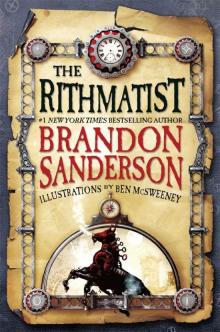 The Rithmatist
The Rithmatist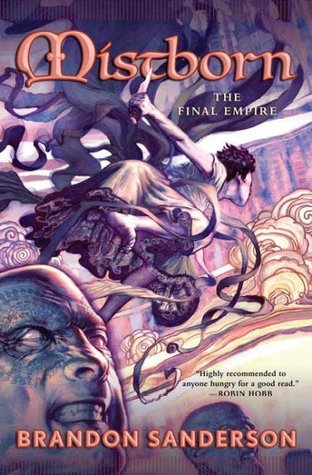 Mistborn: The Final Empire
Mistborn: The Final Empire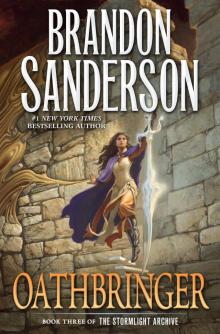 Oathbringer
Oathbringer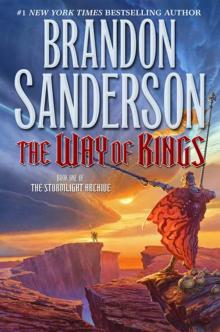 The Way of Kings
The Way of Kings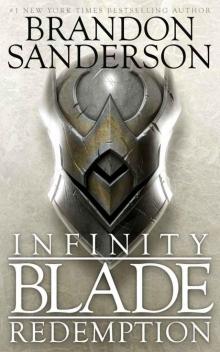 Redemption
Redemption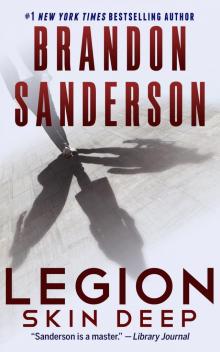 Skin Deep
Skin Deep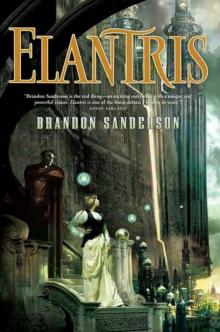 Elantris
Elantris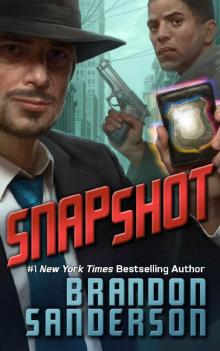 Snapshot
Snapshot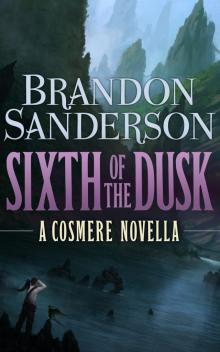 Sixth of the Dusk (Cosmere)
Sixth of the Dusk (Cosmere)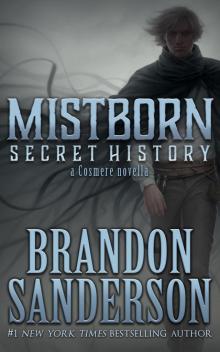 Mistborn: Secret History
Mistborn: Secret History White Sand, Volume 1
White Sand, Volume 1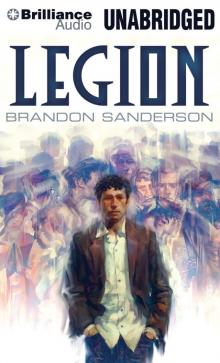 Legion
Legion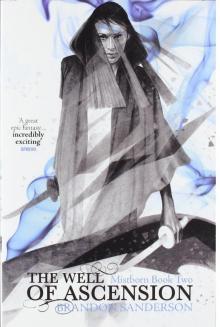 The Well of Ascension
The Well of Ascension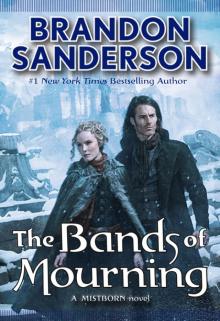 The Bands of Mourning
The Bands of Mourning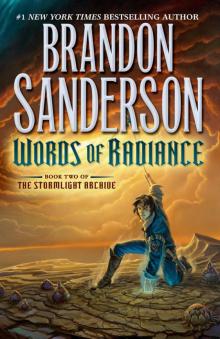 Words of Radiance
Words of Radiance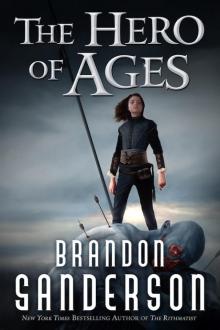 The Hero of Ages
The Hero of Ages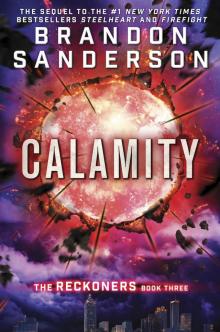 Calamity
Calamity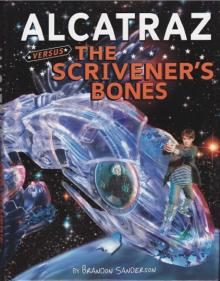 Alcatraz Versus the Scrivener's Bones
Alcatraz Versus the Scrivener's Bones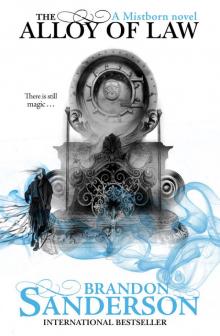 The Alloy of Law
The Alloy of Law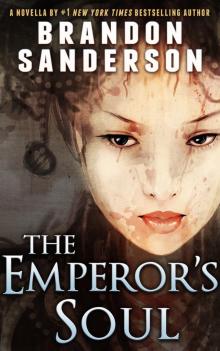 The Emperors Soul
The Emperors Soul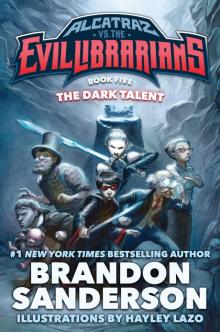 The Dark Talent
The Dark Talent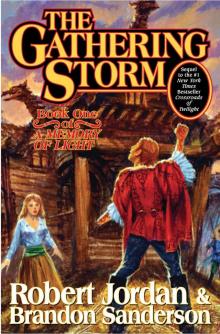 The Gathering Storm
The Gathering Storm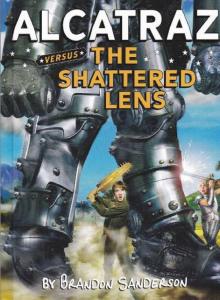 Alcatraz Versus the Shattered Lens
Alcatraz Versus the Shattered Lens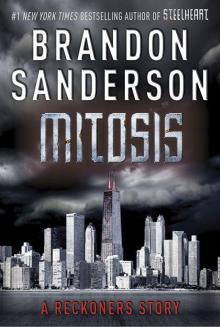 Mitosis
Mitosis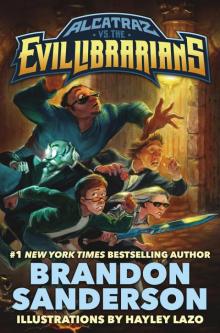 Alcatraz vs. The Evil Librarians
Alcatraz vs. The Evil Librarians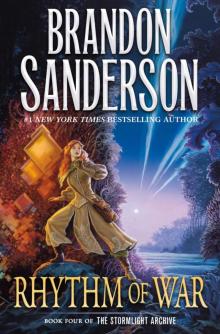 Rhythm of War (9781429952040)
Rhythm of War (9781429952040)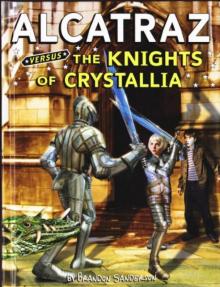 Alcatraz Versus the Knights of Crystallia
Alcatraz Versus the Knights of Crystallia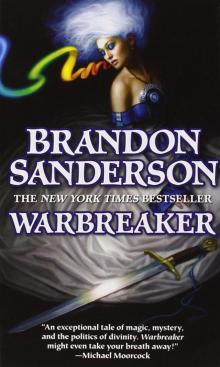 Warbreaker
Warbreaker Firstborn
Firstborn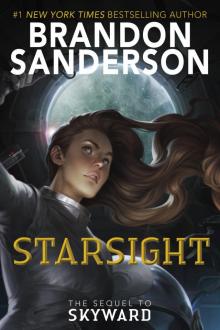 Starsight
Starsight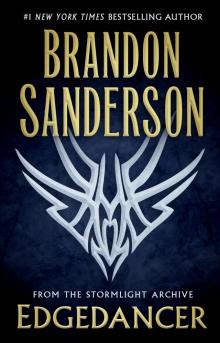 Edgedancer
Edgedancer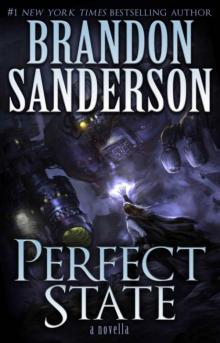 Perfect State
Perfect State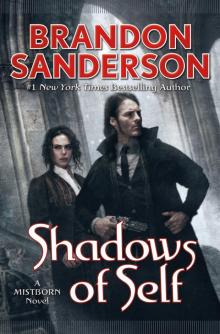 Shadows of Self
Shadows of Self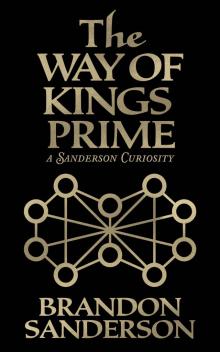 The Way of Kings Prime
The Way of Kings Prime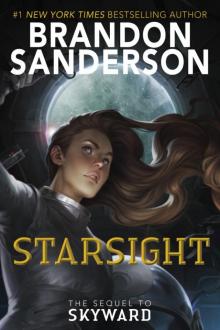 Starsight (US)
Starsight (US)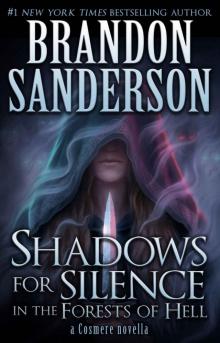 Shadows for Silence in the Forests of Hell
Shadows for Silence in the Forests of Hell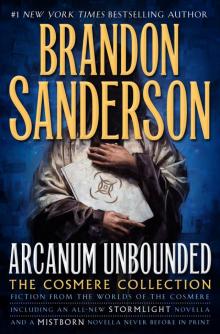 Arcanum Unbounded: The Cosmere Collection
Arcanum Unbounded: The Cosmere Collection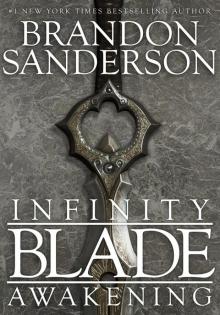 Awakening
Awakening Firefight
Firefight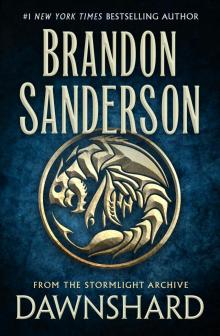 Dawnshard
Dawnshard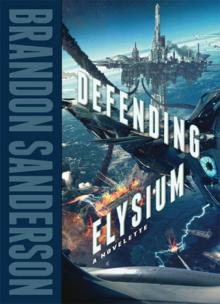 Defending Elysium
Defending Elysium White Sand
White Sand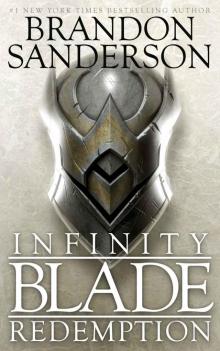 Infinity Blade: Redemption
Infinity Blade: Redemption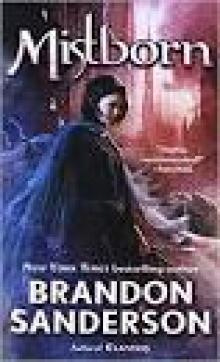 The Final Empire
The Final Empire Skyward
Skyward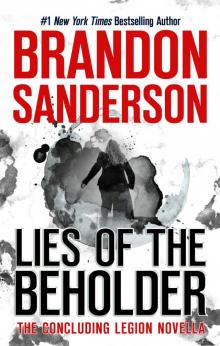 Lies of the Beholder
Lies of the Beholder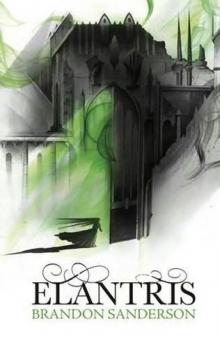 Elantris e-1
Elantris e-1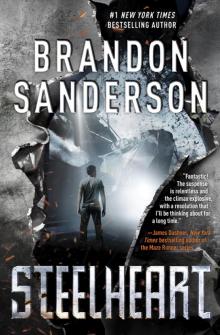 Steelheart r-1
Steelheart r-1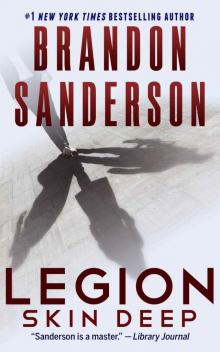 Legion: Skin Deep
Legion: Skin Deep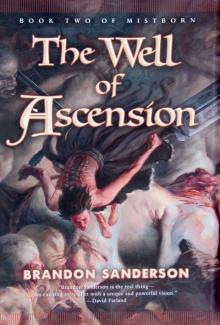 Well of Ascension
Well of Ascension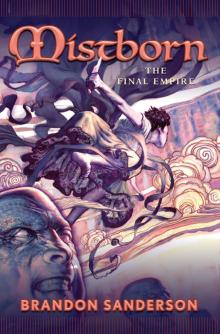 Mistborn
Mistborn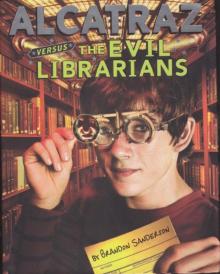 Alcatraz versus the Evil Librarians
Alcatraz versus the Evil Librarians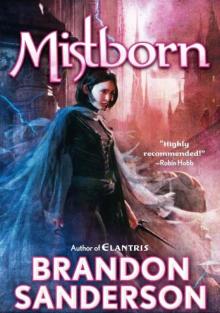 The Final Empire m-1
The Final Empire m-1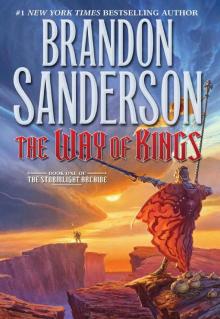 The Way of Kings (Stormlight Archive, The)
The Way of Kings (Stormlight Archive, The)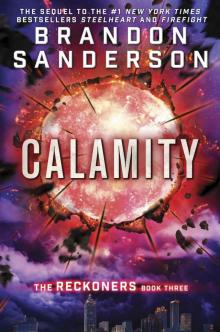 Calamity (The Reckoners)
Calamity (The Reckoners)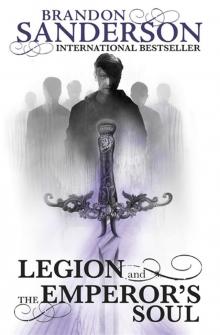 Legion and the Emperor's Soul
Legion and the Emperor's Soul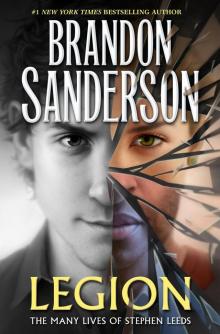 Legion: The Many Lives of Stephen Leeds
Legion: The Many Lives of Stephen Leeds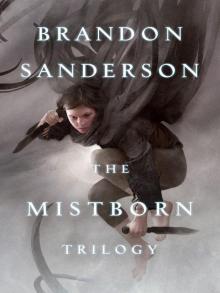 The Mistborn Trilogy
The Mistborn Trilogy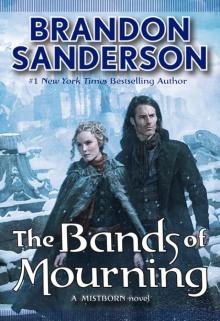 Bands of Mourning
Bands of Mourning Alcatraz
Alcatraz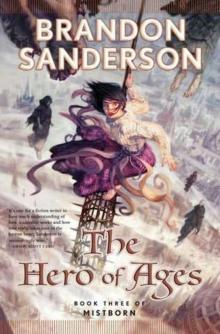 The Hero of Ages m-3
The Hero of Ages m-3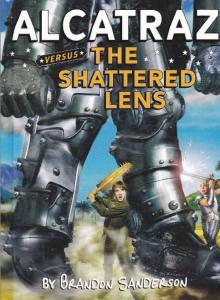 Alcatraz vs. the Shattered Lens
Alcatraz vs. the Shattered Lens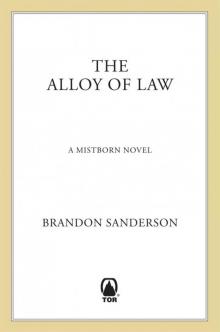 The Alloy of Law: A Mistborn Novel
The Alloy of Law: A Mistborn Novel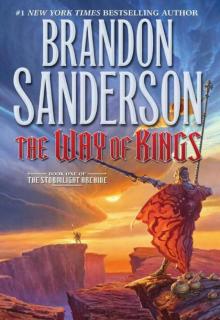 The Way of Kings sa-1
The Way of Kings sa-1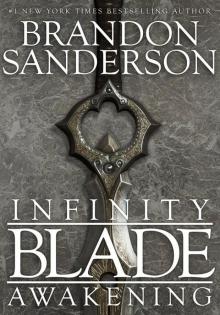 Infinity Blade: Awakening
Infinity Blade: Awakening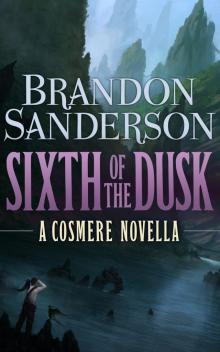 Sixth of the Dusk
Sixth of the Dusk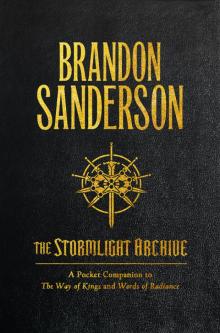 The Stormlight Archive
The Stormlight Archive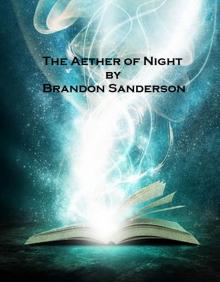 The Aether of Night
The Aether of Night